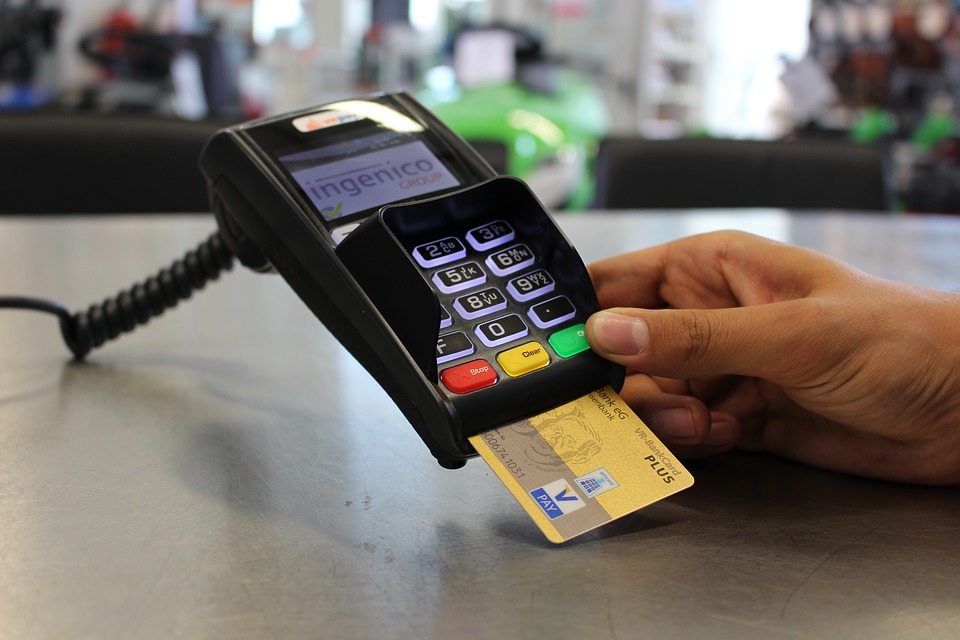According to Plato’s theory of Forms, non-material abstract ideas are more real than their physical embodiments. He would be thrilled to hear that this is the way the world is heading.
With the increasing amount of debit cards, electronic transfers, and mobile payments, the use of cash has long been declining in formal economies. In a cashless society, money is converted into numbers, signals, electronic currents and flows from one device to the next. According to the “World Payments Report 2015” by Cap Gemini, annual growth in global cash-free transactions increased by 8.9% in 2014. New payment technologies such as digital wallets, peer-to-peer payments, and virtual currencies like Bitcoin are increasing in prevalence. In 2016, the Federal Reserve estimated that cashless transaction will amount to $616.9 billion; that’s up 928% from around $60-billion in 2010. So far, the Nordic countries (i.e. Sweden, Finland and Denmark) are leading the world in cashless trading. Their citizens have embraced this move ungrudgingly. It is predicted that they will get rid of cash by 2030.
There are many benefits to removing cash from the economy. For one, it allows the crippling of black markets. Second, monetary policy can run more smoothly when all the money in an economy is under one intangible denomination. Third, faster and easier transactions would facilitate more business activities, which would help minimize the cost of replacing worn-out cash. However, going cashless would have far reaching implications. Privacy is one critical concern.
Nevertheless, we still have a long way to go before we completely abandon cash.
Ethics of Phantom Cash
The reduction in cash usage around the world has, for the most part, been a trend welcomed by customers, businesses and authorities alike. Paying by card is sinfully easy, fast and convenient.
Customers do not need to carry wads of cash and expose themselves to a potential risk of theft. At the end of the month, a comprehensive bank statement allows them to track down every single transaction. For businesses, cashless transactions can mean savings in time and money, as dealing with cash can be costly and time-consuming.
Governments love electronic transactions, since they leave behind “paper trails” that are easier to monitor. Without cash, it’s much harder to hide money from the tax authorities. The costs of tax evasion alone are staggering, amounting to $458-billion annually, between 2008 and 2010, in the United States alone (including federal, state, and local tax), and even more in Europe. Crime and corruption, though difficult to quantify, almost surely generate even greater costs for society.
Furthermore, the use of cash facilitates crime because it is anonymous. High denomination bills are especially problematic because they are easier to carry and conceal. Perhaps burglaries, larcenies, and assaults would decrease because there would be simply less to readily steal. Perhaps digitized payments would deter people from spending money on drugs, weapons and other black market goods, since e-cash leaves a paper trail. While nothing is really stopping such people from withdrawing cash and then spending it illegally, the “Sunsteinian Nudge” is in effect—the very slightest friction or inconvenience in the environment pushes people away from committing crime.
Undoubtedly, there are plenty of ways to bribe officials, engage in financial crime, and evade taxes without paper currency; however, these involve higher transaction costs and a higher risk of detection.
Monetary policy responses
In the current negative interest rate climate, traditional savings vehicles, especially savings accounts, have become less and less attractive. Logically, this results in a compelling case to withdraw money from bank accounts and hoard it. The even bigger likelihood of bank runs would serve to threaten the stability of a central bank’s money supply.
The unorthodox policy of implementing negative interest rates is based on a Keynesian logic: paying banks to hold your money or to borrow funds supposedly boosts aggregate consumption and provides urgently needed stimulus to the economy.
In order to feel the full effects of the extreme medication that is negative rates, Larry Summers, a Harvard economist and former US treasury secretary, bluntly demanded the global abolition of all cash currency at an IMF research conference. Peter Bofinger, a German economist and economic advisor to the German government, also regards coins and banknotes Modern societies not fully grasping the efficiencies of this cashless movement seems like a hard pill to swallow for him. He explains: “If there is no more cash, the zero interest boundary no longer exists, and nothing stands in the way of negative interest rates anymore”.
The economic totalitarianism, where government has oversight over a system where money does not escape, will be complete. However, this also means that policies, fiscal or monetary, will be able to serve the economy at full force. Central banks will also need to get used to faster-reacting policies, since lag effects will be reduced. However, this also means that traditional instruments of monetary policy will lose their power; open market operations and advances to banks will become ineffective as instruments to control national interest rates and money stocks. On the other hand, quantitative easing (i.e. the creation of money with electronic cash) may lend itself to become a far more influential tool than it is now.
Big Data, Big Brother
One of the few people with a critical perspective on this new cashless development is former Interpol president Björn Eriksson. He contrasts the decreased incidence of bank robberies with a drastically increased rate of cybercrime. According to Eriksson, the public hears little about the . Even less well-known is that these “virtual bank robberies” don’t target bank vaults, but rather their databases. This is not surprising in an age where personal data is sensitive and can hold even greater value.
Wherever information is gathered and flows, censorship and surveillance follow close behind. The case of digital money is no exception. Google, Apple, and Facebook already know a lot about their users and monetize that knowledge. In time, as paper money evaporates from circulation, wholesale digitization of money would ultimately empower governments with our increasingly valuable personal data. That is dangerously valuable, because they control the technology directly themselves, or indirectly through their multinational corporations. Financial censorship could become pervasive, unbarred by any meaningful legal rights or guarantees.
There is certainly a case for anonymous digital cash, which is technically possible. New-age crypto-currencies such as Bitcoin, are almost, if not completely invulnerable to detection. While it has certainly seen greater adoption, Bitcoin has been hit with increasing regulation on exchanges which trade it for flat money. This regulatory trend has recreated the very same choke points that Bitcoin’s pseudonymous creator (or creators) Satoshi Nakamoto sought to circumvent in the first place.
Habitual Inertia
Continuing our discussion of the ramifications of negative interest rates on individual spending habits, the extra reinforcement from going fully cashless to coerce people to spend more is controversial, to say the least. Our personal freedoms on spending and consumption would be influenced and challenged.
For many users, having cash equates to a sense of security, and for many, it provides a sense of independence from government oversight. The rise of cyber-crime and growing concerns about the ability of public agencies to look through digital records will add to the increasing unwillingness and discomfort among many to let go of paper money. Moreover, changing ingrained habits of tangible payment is not something that is easily overcome.
Financial Psychology
Today, all you have to do is swipe, tap, or confirm a transaction, and you have the latest gadgets and gems. The physical action and emotional attachment involved in going into your wallet or purse to hand out your hard-earned money is obsolete in our world today. Try counting 100 $10 bills for a $1000 pair of Yeezys and handing this stack of cash to the salesperson. Would it make a difference? Do you really need that new pair of Yeezy Boosts with the new colorway?
Technology has undoubtedly made us a more productive society, and we can identify more pros than cons in most cases. However, within the context of personal finance, we are also becoming a society of spenders via technology. When you use cash in your daily transactions, it enables you to budget for discretionary spending, and it is probably the safest form of transaction. There is also limited accumulation of consumer debt and, most importantly, less guilt, because you have many opportunities to thoroughly think about your action before proceeding.
Of course, this may not work for everybody, but we must be skeptical of the notion of cashless transactions. The more we use our cards, the higher our chances are of losing control of our budget. This will ultimately affect our financial independence.
Countries that are highly digitally evolved are best positioned to unlock the benefits of going cashless by focusing on migrating to digital alternatives to cash. However, there’s a long way to go before going totally cashless is a realistic option in many countries. Fledgling digital infrastructure in low-income countries with unequal access to the internet make the transition to digital money harder. For those countries lagging in their digital evolution, the path to cashless nirvana is through investing in digital inclusion first, which is both time-consuming and costly. But in this new age of technological revolution, with the highly supported drive to reduce cash usage, grow payment platforms, and further development of online business, it is clear that the future is cash-free.



